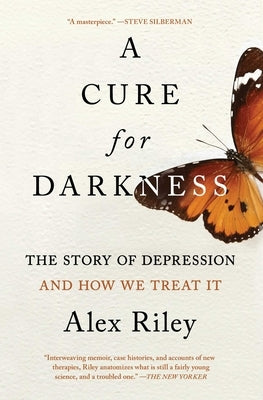Description
A fascinating, "rich, and generous" (Financial Times) look at the treatment of depression by an award-winning science writer that blends popular science, narrative history, and memoir. Is depression a persistent low mood, or is it a range of symptoms? Can it be expressed through a single diagnosis, or does depression actually refer to a diversity of mental disorders? Is there, or will there ever be, a cure? In seeking the answers to these questions, Riley finds a rich history of ideas and treatments--and takes the reader on a gripping narrative journey, packed with fascinating stories like the junior doctor who discovered that some of the first antidepressants had a deadly reaction with cheese. "Interweaving memoir, case histories, and accounts of new therapies, Riley anatomizes what is still a fairly young science, and a troubled one" (The New Yorker). Reporting on the field of global mental health from its colonial past to the present day, Riley highlights a range of scalable therapies, including how a group of grandmothers stands on the frontline of a mental health revolution. Hopeful, fascinating, and profound, A Cure for Darkness is "recommended reading for anyone with even a peripheral interest in depression" (Washington Examiner).
Author: Alex Riley
Publisher: Scribner Book Company
Published: 03/01/2022
Pages: 464
Binding Type: Paperback
Weight: 0.90lbs
Size: 8.20h x 5.50w x 1.30d
ISBN13: 9781501198786
ISBN10: 1501198785
BISAC Categories:
- Psychology | History
- Science | History
- History | Modern | General
Author: Alex Riley
Publisher: Scribner Book Company
Published: 03/01/2022
Pages: 464
Binding Type: Paperback
Weight: 0.90lbs
Size: 8.20h x 5.50w x 1.30d
ISBN13: 9781501198786
ISBN10: 1501198785
BISAC Categories:
- Psychology | History
- Science | History
- History | Modern | General
About the Author
Alex Riley is an award-winning science writer living in Bristol, UK. His work has been published by Aeon Magazine, the BBC, The Guardian, PBS's NOVA Next, and New Scientist, among others. In 2019, he received a best feature award from the Association of British Science Writers for his reporting on The Friendship Bench, a project that provides mental healthcare to low-income communities in Zimbabwe and has been adopted in countries around the world.

